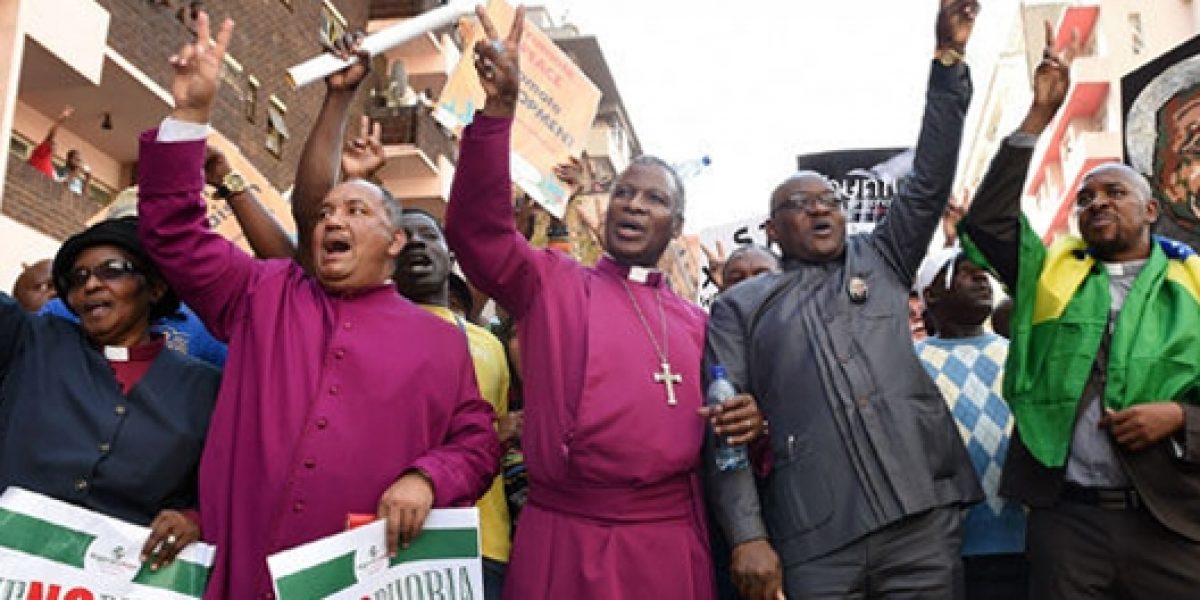A governance assessment of South Africa under the African Peer Review Mechanism (APRM) in 2007 emphasised these underlying tensions with foreign nationals.
It read:
‘An atmosphere of xenophobia, particularly against black people coming from other African countries, seems to be emerging… The perceived devaluation of labour that comes as a result of migrant workers entering the South African market accentuates conflict and xenophobia. The government must address this issue in policy and law… Xenophobia against other Africans is of serious concern and should be nipped in the bud’.
Violence erupted in 2008, and sporadically since then. Yet while the South African government acknowledged the issue in the report, its response was non-committal:
‘South Africa shares the view that more needs to be done to fight xenophobia. The South African government is committed to fighting and educating society against all forms of discrimination and prejudice.’
Why was this critical issue flagged but seemingly largely ignored?
A brief background to the APRM is necessary before answering this question. It is a mutually agreed instrument voluntarily acceded to by the Member States of the African Union, as a governance self-monitoring mechanism. It is a bold, unique and innovative system designed and implemented by Africans for Africa. The mandate of the APRM is to encourage improvement across four thematic areas: democracy and political governance, economic governance and management, corporate governance and socio-economic development. To make the reports balanced and fair the reviews are both internal (performed by the country in question) and external (conducted by an outside team of experts). At the end of the process the report is presented to and discussed by the heads of state and government of APRM members. The country under review subsequently commits to implementing a National Programme of Action (NPoA), designed to address the governance challenges identified.
Unfortunately, a huge gulf exists between identifying issues and eradicating them. For the most part, the 17 country reviews conducted so far amongst the APRM’s 35 member states have been frank, thorough and to the point. Yet both discussions at the heads of state level and subsequent NPoA implementation by members have been disappointing. The recommendations made by the APRM Panel of Eminent Persons are not enforceable, and many are simply set aside.
The APRM, in part, was established to dissolve perceptions of an ‘old boys’ club of African leaders reluctant to criticise each other. It has fallen short in this area. Although the issues of xenophobia in South Africa and potential for post-electoral violence in Kenya were identified in the countries’ review reports, failure to act had dire consequences. The lack of attendance of APRM Forum meetings by heads of states, previously flagged by the South African Institute of International Affairs (SAIIA) in January 2014 and January 2015 raises further questions about the political will behind this process.
The APRM must not be allowed to die a slow death, in spite of the current challenges and the fact that 12 years after its inception, it is no longer a popular buzzword. It remains Africa’s premier governance assessment and improvement tool.
Searching for a way forward, and examining how the APRM has played out in Southern Africa in particular will form the basis for a regional stakeholders workshop in Gaborone, Botswana, on 20-21 May. Entitled ‘The APRM in Southern Africa: Exploring Synergies with the Southern African Development Community’, the event is to be co-hosted by SAIIA, the Electoral Institute for Sustainable Democracy in Africa (EISA), the African Regional Office of the Open Society Foundations (AfRO) and the Southern African Development Community Council of Non-Governmental Organisations (SADC-CNGO), in collaboration with the African Peer Review Mechanism Secretariat.
This workshop will assess the current status of regional economic community (RECs) engagement with the APRM, in particular SADC. The organising partners also hope to initiate dialogue with SADC and other African RECs to establish a deeper and more structured relationship between them and the APRM continental institutions.
It is hoped that these discussions will serve to reignite enthusiasm around the mechanism, and place African governance concerns front and centre as the continent reflects on Africa Day. After all, without good governance, it will be impossible to achieve the peace, progress and prosperity to which Africa aspires.








